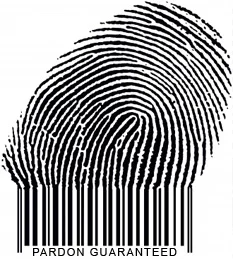Canada Pardon Services specializes in assisting any person with Canadian criminal records to obtain the Canadian Pardon and the U.S. Entry Restriction Waivers.

Canada Pardon Services specializes in assisting any person with Canadian criminal records to obtain the Canadian Pardon and the U.S. Entry Restriction Waivers.

Avoid embarassment and deportation
The rehabilitation (the Pardon) is a measure that allows a person convicted of a criminal offence to have his criminal record removed from other court files offenders.
The Criminal Records Act allows all records and documents pertaining to convictions of a rehabilitated person, arrested by the Royal Canadian Mounted Police, a federal department or agency, to be deleted.
Thus, the information relating to these convictions are removed from the computer system of the Information Centre of the Canadian police.
Anyone who has been convicted of a criminal offence and who has completely served his sentence may request a Pardon. When a person has been the subject of several convictions, he must have completely served all sentences imposed.
For example, it is considered that a person has fully served his sentence when he has paid the fine, the surcharge and fees in full; fully complied with the restitution order; finished serving his sentence in prison, including the period of conditional release or official release; finished serving his sentence of imprisonment; completed his probationary period in compliance with the conditions.
The decision to grant a Pardon is made by the National Parole Board under the Criminal Records Act. When a person is convicted of a criminal offence, information regarding such conviction is entered into a criminal record. This criminal record is filed with the court files of other offenders, unless that person obtains a Pardon.
If you are found guilty you unfortunately have a criminal record for life, and this record does not automatically get deleted over time, to delete it you must go through the Pardon process.As of March 13 2012, the term “Pardon” has been replaced with “Record Suspension”. Criminal records constitute a hindrance to your life by restricting access to employment, career development, training and travel. Indeed your criminal record can be detrimental to your application if you want a job in many sectors such as banking, insurance, security, government, finance, business. Your previous criminal record can cause you problems if you wish to travel. To apply for a visa to enter certain countries, you must prove that you are law abiding and your presence does not represent any risk or a hazard to the countries being visited (see more details on the entrance to the United States section)
As a general rule, during the imposition of a sentence, a person who has already endorsed a history judiciary will be dealt with more severely than a person who has never been convicted. The criminal record is the tool that makes it possible to know who has a previous criminal record and who has not.
The criminal record limits your right to training, employment, promotion and obtaining licenses and permits and is also a reason why insurance companies can refuse membership (home insurance, car insurance, health insurance) or you pay high rates.



In 1981, when he was a student at the university, Pierre Sévigny was taken in a story pyramid plan. “It’s a trick to make easy money. I was sent before the judge and I was sentenced for fraud. I had to pay a $2500 fine and I had a criminal record, “he says. To launder his reputation, Mr. Sévigny obtained a Pardon a few years later.
Businessman busy, he then travelled on numerous occasions to the USA. He also lived in Sweden for four years. But last March, U.S. Customs agents have refused to let him pass. “For whatever reason, they knew that I had already had a criminal record. They do not really want that I cross the border, “he says.
Mr. Sévigny was initially surprised by this refusal. “I repeated that I had obtained a Pardon, but customs officials were laughing. They said that the terrorists who blew up a nightclub in Indonesia had also obtained a Pardon. What ridiculous comparison! “Protests businessman.
Since customers were waiting in New York, Mr. Sévigny protested. “I said that I had not committed violent crime. I talked to my clients. I was finally passed with a special permit, but I’ve made it clear that henceforth I would be banned as I would not have the waiver, “he said.
Cases like that of Mr. Sévigny, the company Identification Canada sees more and more. “In addition to businessmen and travelers, those most affected by the tightening of border controls are truckers,” says co-owner of the company, Steeve Hollingworth.
For a truck driver, obtain a waiver is a real ordeal. “It’s so long! While waiting to have their waiver, drivers are forced to remain in Canada. If they still try to cross the border, their truck can be seized, “said Jean-Claude Fortin, chairman of the transportation company J.-E. Fortin, Saint-Bernard-de-Lacolle.
And even with their temporary permit, truck drivers are penalized. “At customs, they are automatically escorted out. They lose a lot of time and, in the trucking industry, every minute counts, “says Fortin.
The customs have assured him that the procedure would be amended in September. “I hope this will be done. Because, currently, a driver can be seriously penalized just because he stole a chocolate bar in his youth. “
Ariane Lacoursière
August 5, 2007 – 07h11
La Presse
Canadians with criminal records, or even some who have been finger printed but never convicted, may see themselves rejected when they tried to cross the US border.
The US department of immigration is dramatically increasing the control policy in the US borders; the risks of detention, deportation, and even incarceration have never been higher.
Due to the high volume of traffic between Canada and the U.S., there is often a false sense of security in citizens of both countries, that the chances of being caught are high due to the new control policy. Then, the results of being caught in the U.S. or trying to enter the U.S. with an undeclared criminal record can be severe and should not be ignored.
Once the Pardon is granted the person’s criminal record is sealed which means that it will not show up in the Canadian databases typically searched by law enforcement agencies on both sides of the border. However, the criminal record is not erased and can be disclosed or re-instated in the appropriate circumstances.
In terms of crossing the border, a Canadian Pardon has no value because it has no effect on records kept in the United States. Therefore if your criminal record has been entered into the U.S. system for any reason you may still be refused entry into the U.S. based on that criminal record even though the record has been sealed in Canada.
To gain legal entry into the U.S. with a Canadian criminal record it is therefore advisable to apply for a U.S. Travel Waiver.
In conclusion, the Canada/U.S. border is increasingly becoming more of a hurdle than a turnstile. Canadians with criminal records should spend some time investigating their options and the possible repercussions of ignoring the risks.